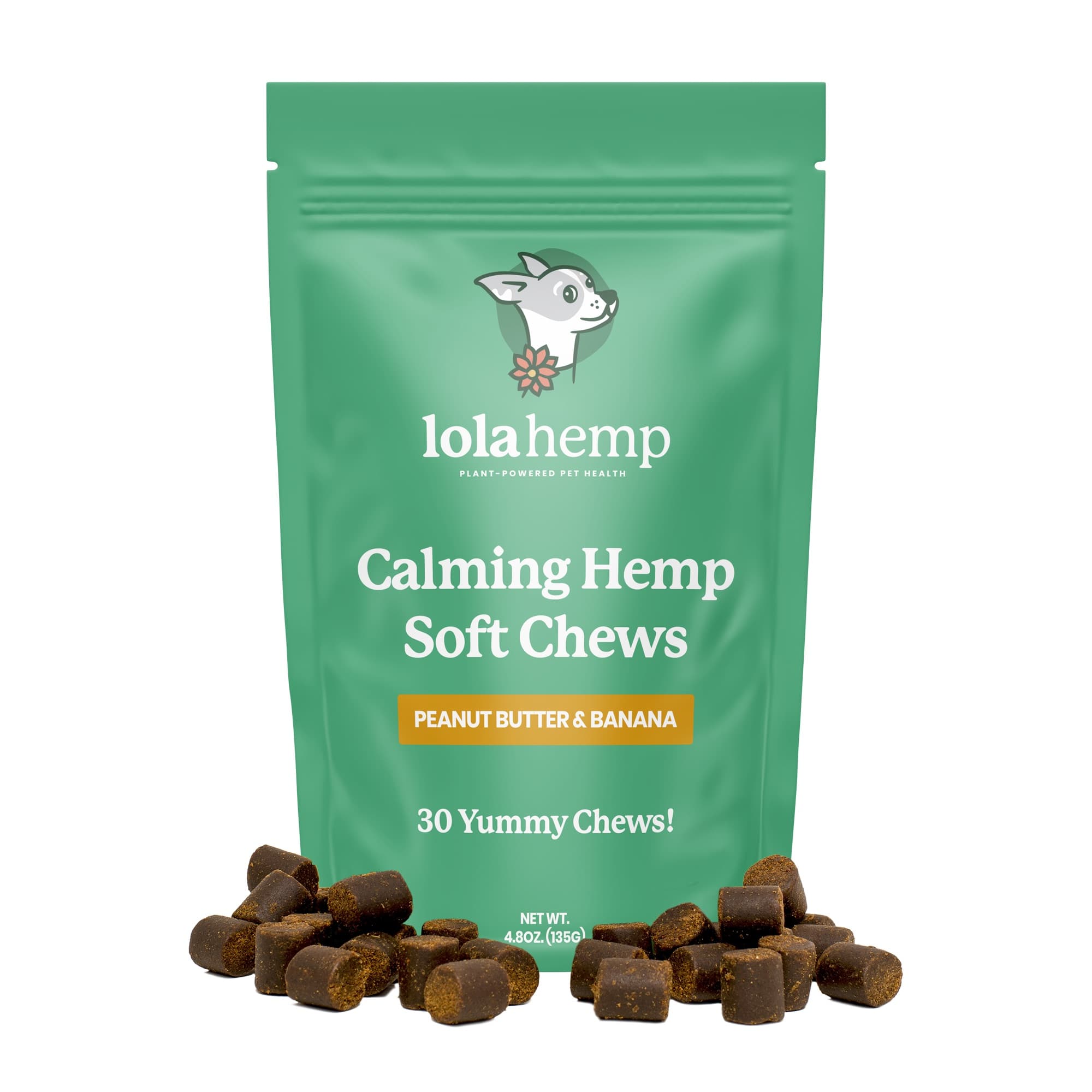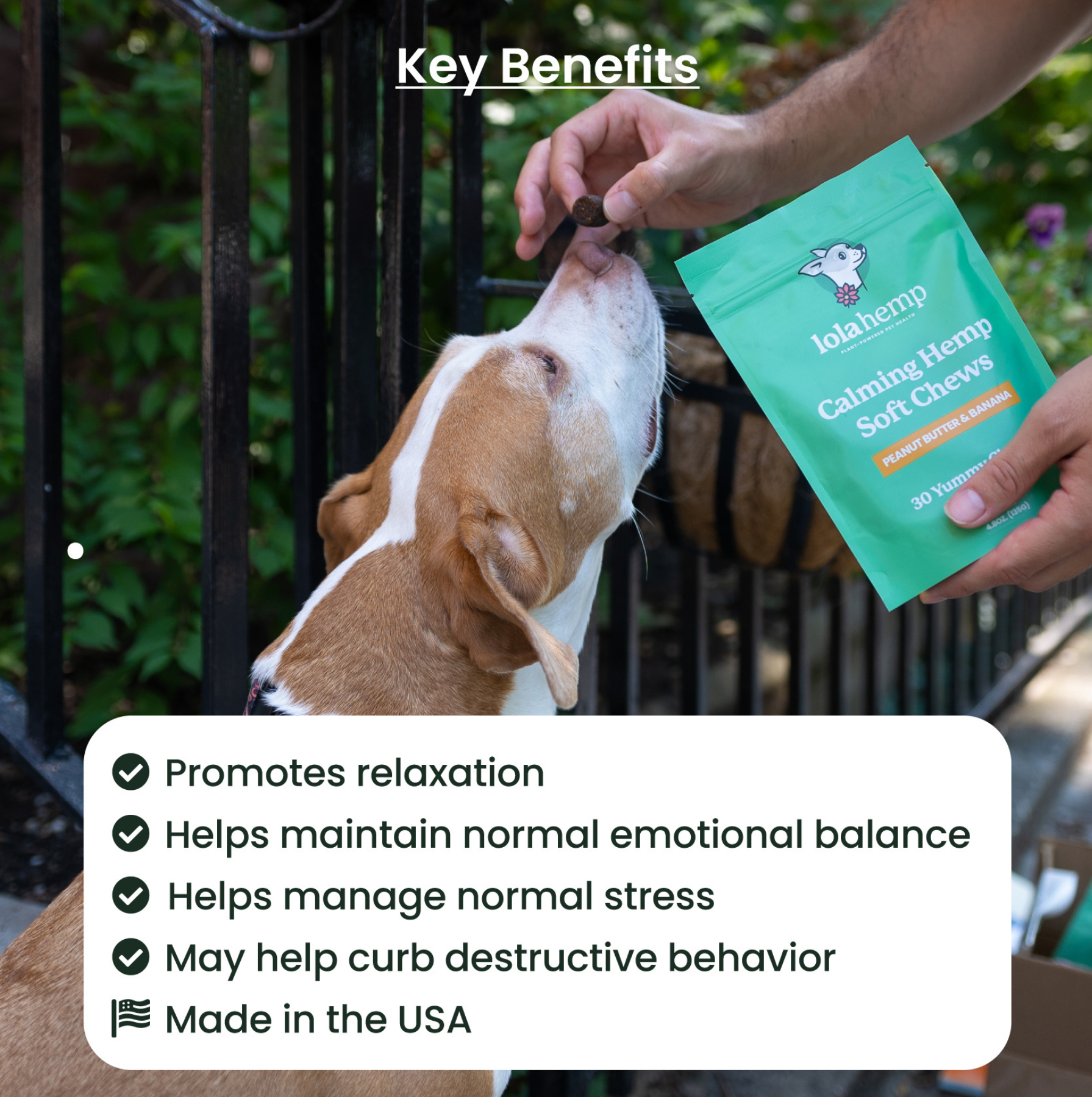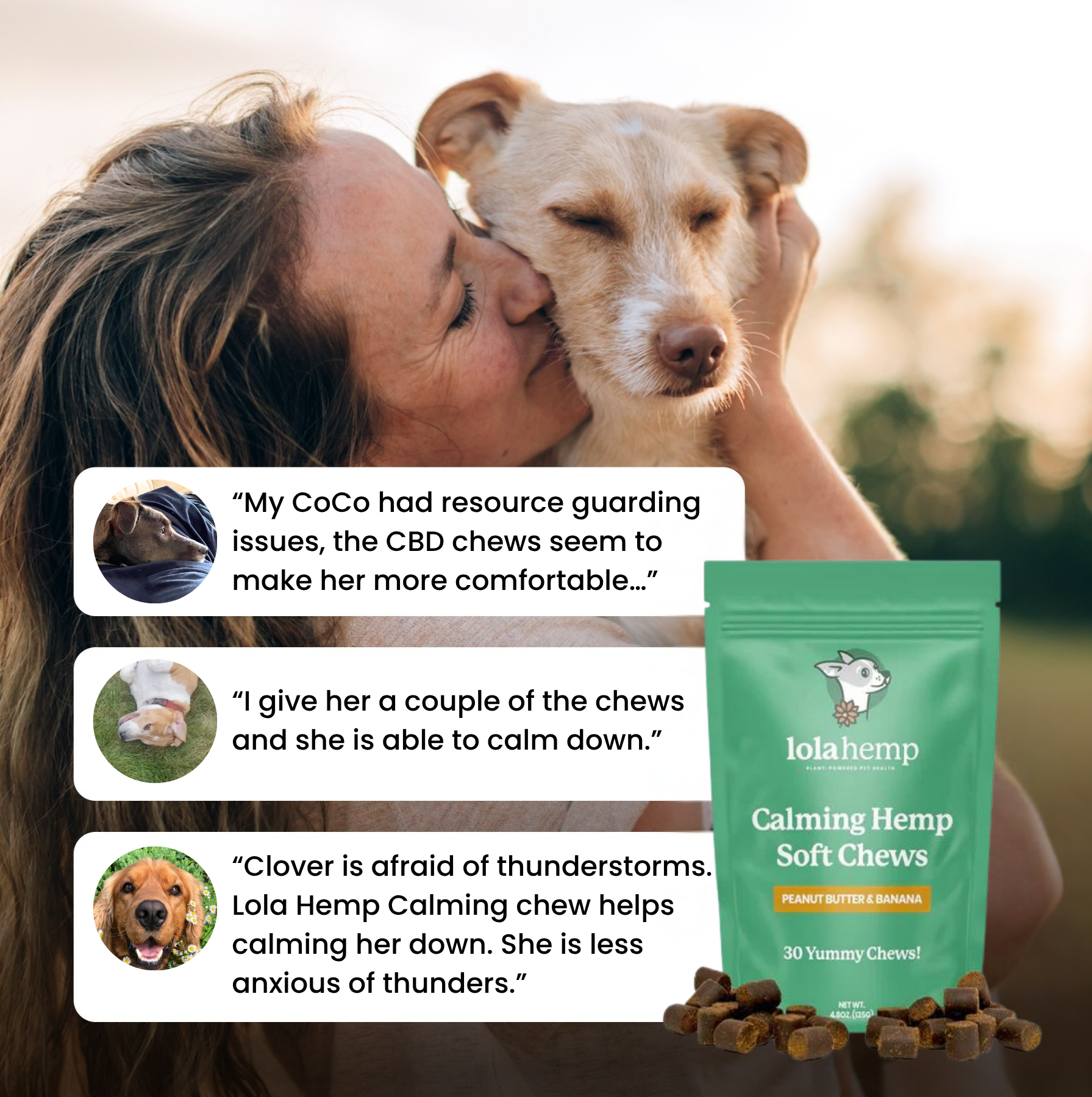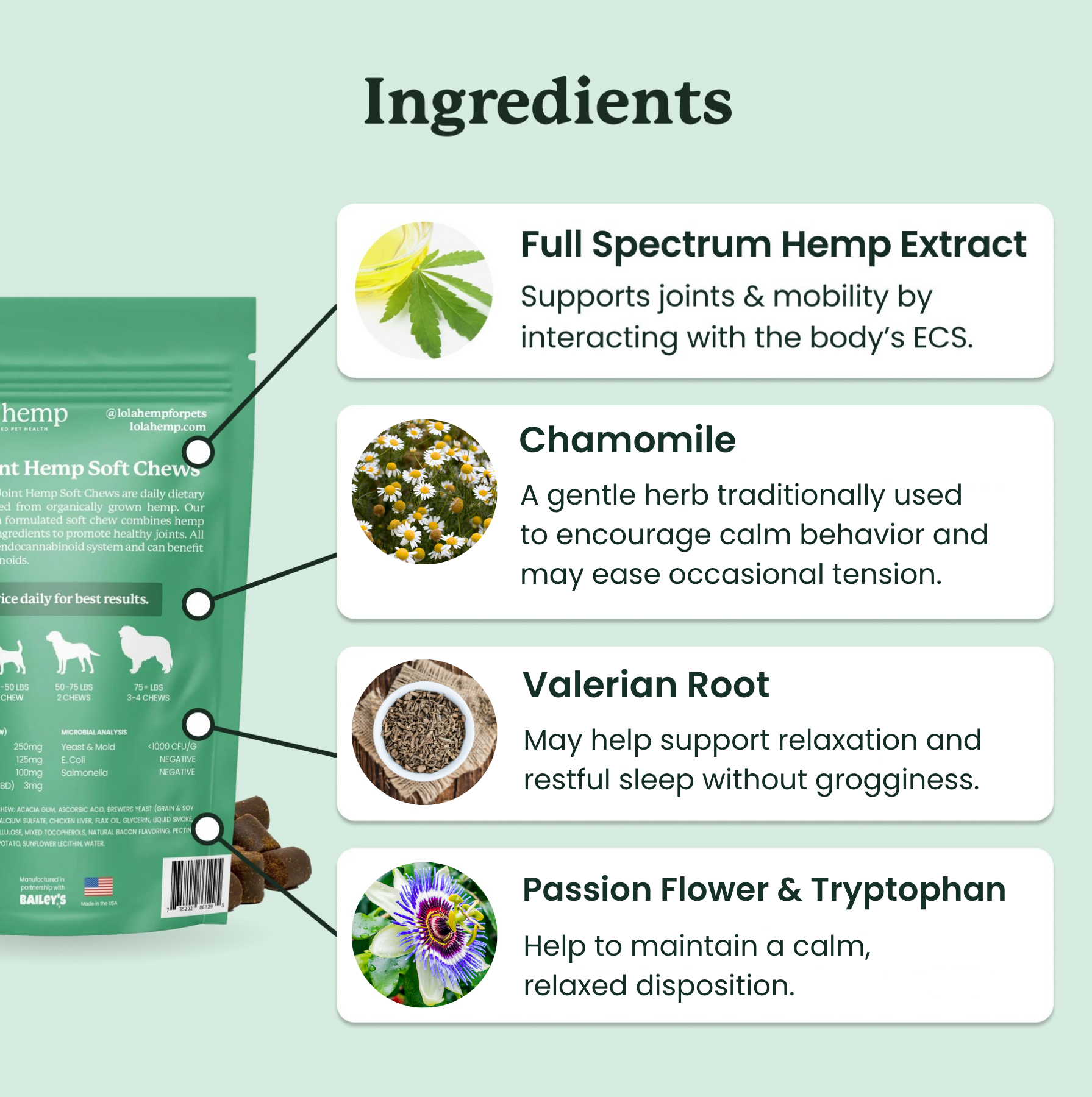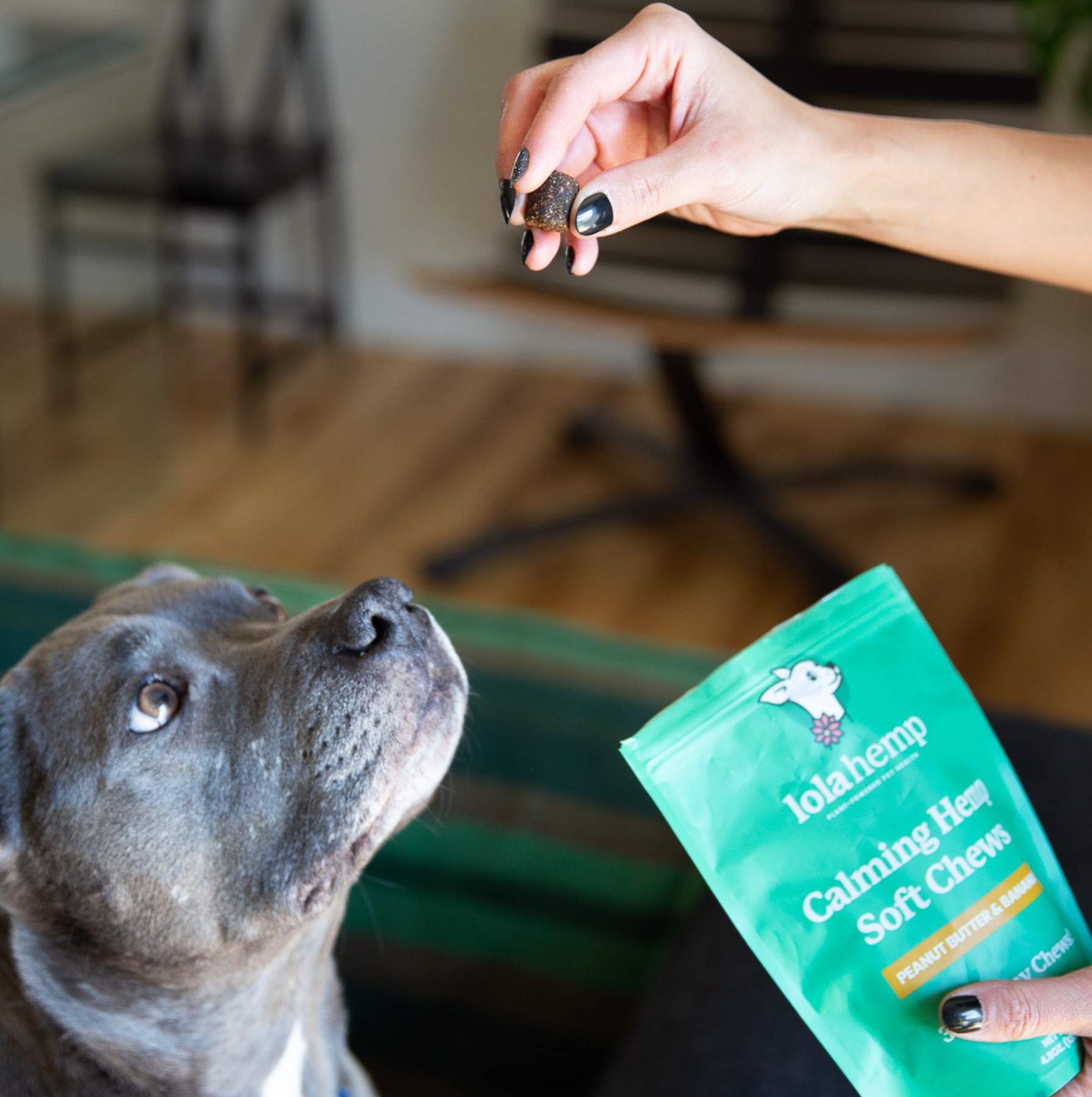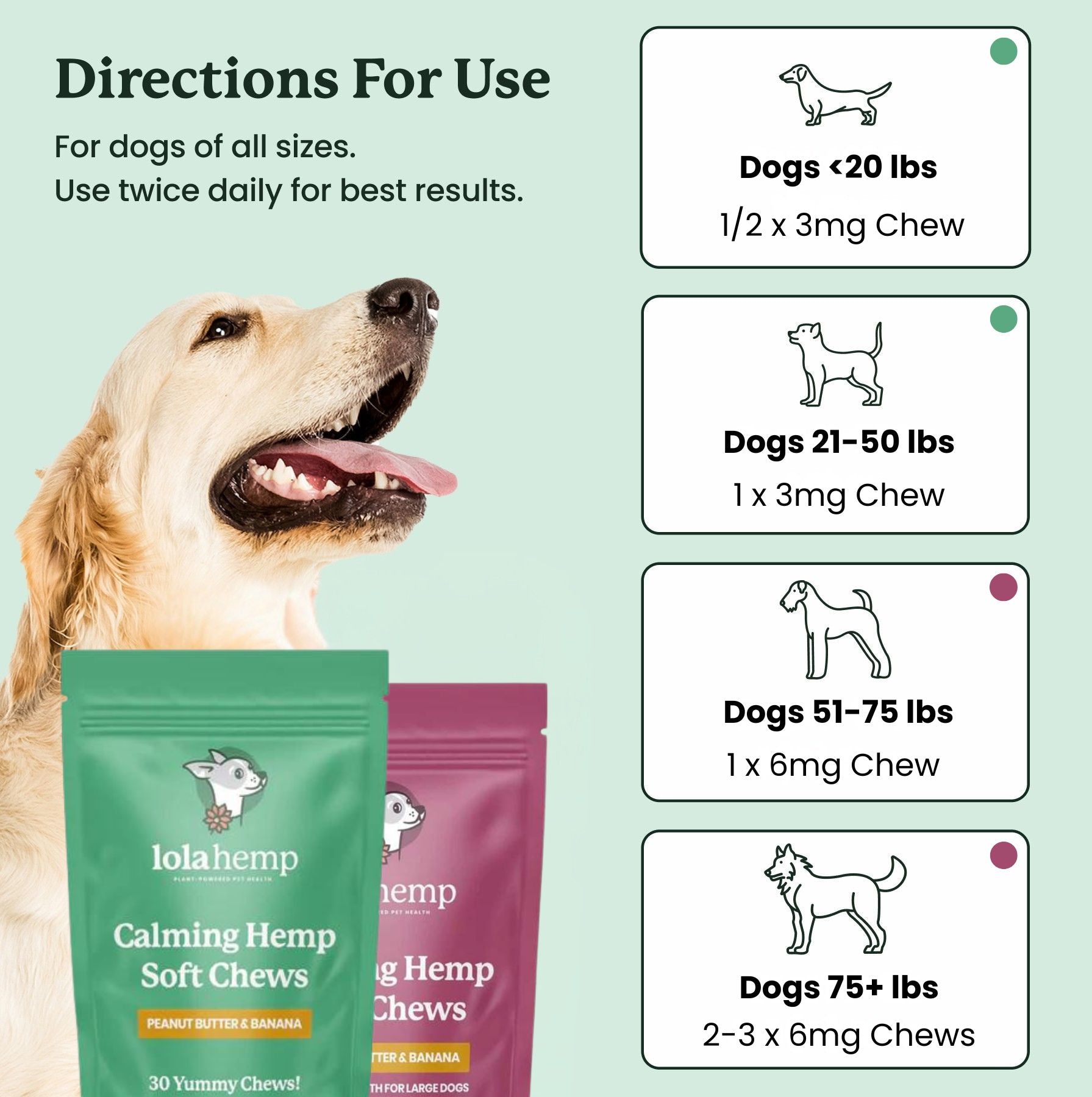Valerian root, derived from the Valeriana officinalis plant, is an herbal remedy known for its calming effects on the nervous system. Often used to help with anxiety, restlessness, and sleep disturbances in humans, it has also gained popularity as a natural way to support relaxation in dogs.
While many pet owners turn to CBD for similar benefits, valerian root offers a different approach by promoting relaxation through its effects on neurotransmitters like GABA. In this guide, we’ll explore how valerian root works, its potential benefits, and what you should know before giving it to your dog.
Valerian Root for Dogs Overview

Valerian (Valeriana officinalis) is a perennial plant native to Europe and Asia. The ground-up roots and rhizomes (underground stems) of the plant are sold in valerian root capsules and powders (1).
The historical use of valerian root goes back as far as ancient Greece and Rome. It was used as a medicinal herb to treat nervousness and insomnia, among other ailments.
Valerian root contains a variety of plant compounds. Scientists haven't yet discovered valerian root's "active ingredient," and multiple natural chemicals may be involved (2).
Can Dogs Have Valerian Root?
Yes, dogs can have valerian in safe dosages. It's always best to discuss adding a new supplement or ingredient into your dog's diet with your veterinarian. Cats owners can consider valerian as a feline calming agent as well.
Holistic veterinarians sometimes suggest valerian root for dogs experiencing anxiety or facing a stressful situation.
Situations Holistic Vets May Recommend Valerian Root for Include
- Separation anxiety (being home alone)
- Car rides
- Thunderstorms
- Fireworks
- Travel
- Moving
- Visits to the veterinary clinic
- Parties or unfamiliar people in the home
- Introducing a new pet
If your dog's anxiety is an everyday occurrence or if they become aggressive when afraid, talk to your veterinarian about valerian root, or supplements that include it.
Your vet can recommend medications, supplements, and behavior modification strategies tailored to your dog's age, breed, personality, and health status.
Benefits of Valerian Root for Dogs
While valerian root may help your dog, remember: it is not a cure-all. Supplements can be helpful add-ons, but they rarely resolve an issue like anxiety all on their own.
Dogs with severe anxiety are likely to need more help to feel better. Behavior change, environmental modification, and prescription medication are often combined to relieve anxiety symptoms in dogs.
Potential Benefits Include:
- Calming Support
- Natural Alternative to Harsher Options
- Potential Muscle Relief
As you can see, Valerian could support your dog's sense of calm.
Side Effects of Valerian for Dogs
If you choose to try valerian root for your dog, you'll want to monitor closely for side effects. Side effects in people are generally mild.
Potential side effects of valerian root include:
- Sedation (drowsiness)
- Lethargy (low energy)
- Vomiting
- Diarrhea
Lastly, do not give valerian root to pregnant dogs, nursing dogs, or puppies. These populations are at greater risk of side effects (3).
Contact your vet with any concerns after your dog begins taking valerian root. It's best to stop giving the supplement until you and your vet can formulate a new treatment plan.
Valerian Root Medication Interactions

While the side effects of valerian root are mild, it has the potential to interact with prescription medications.
Possible medication interactions with valerian root include:
- Surgical anesthesia
- Seizure medications
- Pain medications
- Anxiety medications
- Other dietary supplements (St. John's wort, kava, melatonin)
Valerian could make the effects of these medications stronger in unpredictable or dangerous ways!
If your dog takes a prescription medication, reach out to your veterinarian before starting a valerian root supplement. You may need to use a lower dose or pause the supplement before an upcoming surgery.
So, Is It Worth Trying Valerian Root for Your Dog?
Valerian root is a natural supplement popularized for its calming effect and sedative qualities. As with any herbal supplement, it's essential to consult your veterinarian before giving your dog valerian root.
Your vet can help determine whether valerian root is appropriate for your dog and recommend a safe and effective dosage. They can also help you monitor your dog for side effects and adjust the dosage as needed.
Valerian for Dogs FAQ
What is Valerian for Dogs?
Valerian for dogs refers to the use of valerian root as a natural calming supplement that may support relaxation and reduce mild stress or anxiety.
Is Valerian for Dogs Safe?
Valerian for dogs is generally safe when given in proper dosages approved by a veterinarian and avoided in pregnant, nursing, or very young dogs.
Can Valerian for Dogs Help with Anxiety?
Valerian for dogs may help with mild anxiety by promoting calmness, though dogs with severe anxiety may require additional treatment.
How Do You Give Valerian for Dogs?
Valerian for dogs can be given as capsules, powders, or in blended supplements made specifically for pets, following your veterinarian's dosing guidance.
What Are the Side Effects of Valerian for Dogs?
Side effects of valerian for dogs can include drowsiness, lethargy, vomiting, or diarrhea, and any reaction should be discussed with your veterinarian.

